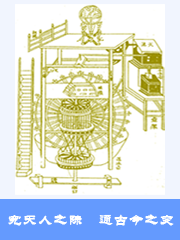Location:Home> Publications> Articles
- Institutionalized Science Research: The Concept and Its Development Logic
| Jounal : | Studies in Science of Science |
| Author : | Zhao Lanxiang, Yao Dazhi, Song Qingqing |
| YEAR : | 2023-11-17 |
| Vol. : | |
| No. : | |
| Page : | 1-13 |
| Abstract : | Science is not only an organized, objective, and reasonable knowledge system but also an institutionalized social activity. Organizations specialized in scientific research have been developing and evolving in the process of science moving towards experimental science and mega-science since modern times. Contemporary science and technology have shown unprecedented institutionalized characteristics. A new notion of “institutionalized science research” is introduced in the context of policy necessary, and its distinctive characteristics are explored from historical logic, theoretical logic, and empirical logic. This paper demonstrates that the history of scientific development is also the history of scientific knowledge production and scientific institutional evolution. In the history of scientific institutional evolution, every major mode adjustment aims to optimize the conditions and organizational structure of scientific research, to continuously improve the efficiency of scientific research activities. Improving the efficiency of scientific research is the intrinsic motivation for the evolution of institutionalized science. The existence of knowledge production mode II does not mean that mode II is better than mode I. Knowledge production mode II cannot be simply used as a basis for transforming research institutes. Knowledge innovation advances by interaction in the two-way as highly split and integration of scientific disciplines, which reflects the evolution of standardized science research. The knowledge system shapes matching research organizations. The knowledge domains that play a leading role in the knowledge system architecture are different, forming a macro dynamic evolution of institutionalized science research history. As revealed by the experience of some famous scientific research institutions, scientific research innovation is not achieved in isolation, but requires an interaction between science, technology, and instrument development. Mutual support between traditional and cutting-edge disciplines is also important. Organizational design should take into account both the concentration and integration of scientific research. These structural resource allocations are the irreplaceable value of institutionalized science research. This paper has important policy implications.The institutionalized development of scientific research focuses on improving efficiency and should be based on solid specialized knowledge production capacity, which should conform to the general law of knowledge production and the characteristics of the knowledge system. Therefore, the current policymakers urgently need to adjust the “formalization” and “benchmarking” scientific research evaluation methods and do high-quality and innovative scientific research.Moreover, the structure and layout of scientific research institutions greatly affect the efficiency of scientific research activities. However, there are some shortcomings in the structure of China’s scientific research institutions. For example, the composition is simple. The performance evaluation results are biased to the quantitative output of papers. The supply of scientific instruments and equipment is heavily dependent on foreign countries. Therefore, in terms of the internal components of scientific research organizations, policies should make up for the shortcomings of instrument development in the future. Policymakers should clarify and enhance the positioning of technology scientific research institutions according to the goal orientation. To sum up, this paper provides a new perspective for research on science and technology policies and has theoretical and practical reference value for the future reform of China’s science and technology system. |




